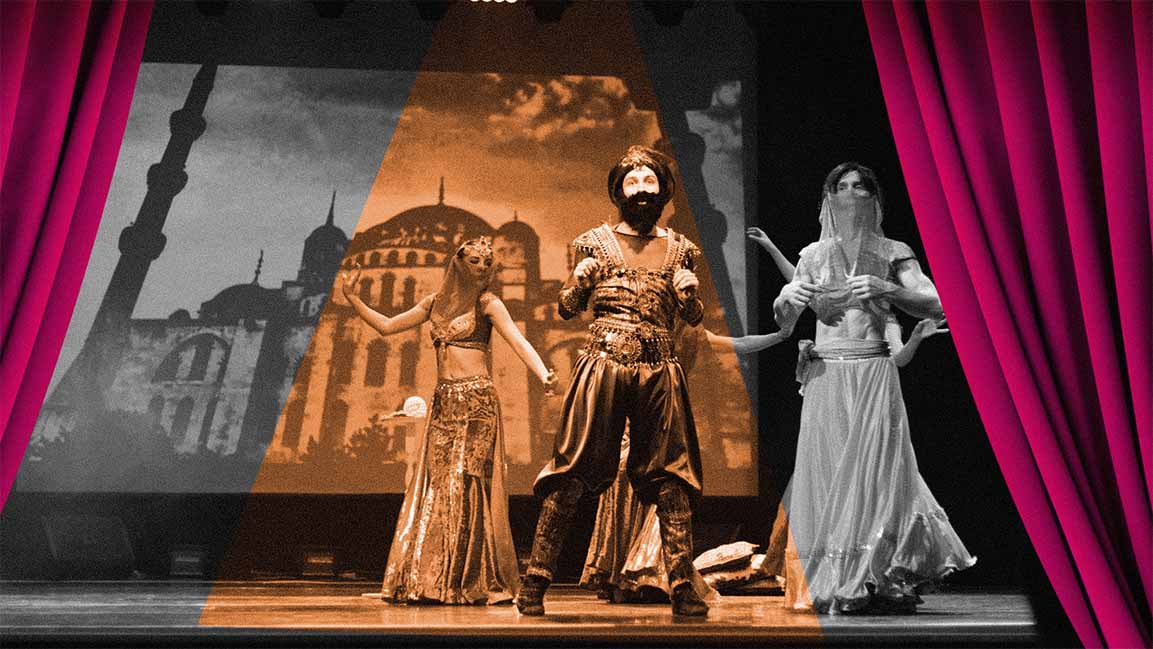- | 9:00 am
Kuwait’s theater culture is still thriving. Here’s why
For decades Kuwait has preserved its relationship with theater, one of the first Arab countries to have a theater culture.

What happens when you put funding and curating decisions in the hands of energetic, passionate people with deep knowledge about the theater? It puts down roots and starts blooming. It’s how new artists and new audiences are made. As an art form, theater is deeply embedded in Kuwait’s history.
It has a homegrown theater tradition that makes it one of the few countries in the Gulf with a deep-rooted connection with the theater.
Often called Hollywood of the Gulf, the country has produced many theatrical and opera shows, and its relationship with theater can be seen in the quality of the content created.
It’s growing a model of arts engagement that is flourishing in the country and transforming the opportunities available to artists and audiences.
FUN, INTERACTIVE AND UNIQUE
“There is a very special relationship between every element of the theater here. It allows society to be viewed through a fun, interactive, and unique lens without sacrificing the universal human characteristics,” says Bassam Shuhaibar, a scientist at Kuwait Institute for Scientific Research by day and frontman of a local rock band by night.
Describing the theatrical culture of Kuwait, Shuhaibar, who grew up watching Kuwaiti plays, adds, “The thing that strikes me is how well-known Kuwaiti actors are, both locally and regionally. There was a point in the 80s and early 90s when someone like Abdul-Hussain Abdul Redha or Suad Abdullah could not walk down a major street, whether in Kuwait or Cairo, without being thronged by fans.”
“They were known for their onstage presence and appearances in TV series, which were very popular. Their celebrity status and how they interact with their fans contribute to our theater culture.”
First began in the 1920s and constituting a major part of the country’s cultural life, theatrical activities are still popular today. Kuwaitis celebrate the transformative power of arts engagement and the link between participation and going to the theater.
A leading expert on music and the author of numerous publications, including Music and Traditions of the Arabian Peninsula, Dr. Lisa Urkevich, says the significance of Kuwaiti theater comes from the fact that it has had a long history, supported by the government and the public.
Actors, directors, and writers of today are part of a continuum from a vibrant past, and they have a tradition, a model they have built upon. “Performing artists of Kuwait start at a more advanced level than many other regional countries because they can stand on the shoulders of their forefathers and foremothers.”
A professor for two decades and head of the Department of Music and Drama at the American University of Kuwait, Dr. Urkevich further explains the rise of theater in Kuwait. “Merchant families founded Kuwait, and because of its locale, trade, and interaction with diverse people and cultures, Kuwait has always embraced assorted music and performing arts. It was a part of daily life.”
Then, in the 1960s, after Kuwait became independent from British oversight, it sought to modernize and invest in mass media and directly compete with Cairo. “This was a very ambitious undertaking for such a small country to try and rival the greatest artistic center of the Arab world at the time, Cairo,” adds Dr. Urkevich.
PERFORMING ART BLOSSOMED
Television programming began in Cairo in 1960, and Kuwait started a year later, the first in the Arabian Peninsula. “People in the region felt a closer cultural tie with Kuwait and started watching Kuwaiti TV series, and performing artists blossomed. This was natural because they had already been encouraged to engage artistically for generations.”
By the 1980s, Kuwait’s television production facilities and the content it created surpassed Cairo’s. At the same time, the government started supporting the theater. Many grand theatrical-musical productions that are well-loved shows, with dialogue, song, and dance, often about heritage and national pride, came under the Ministry of Education. Dramatic theater and comedies also prospered, as they do today.
“Even among the English-speaking population, the British, who are well known for their theatrical history, for decades staged ‘pantos’ in Kuwait along with all kinds of other theatrical productions. So, the theater has remained lively on various levels in Kuwait for a long time,” says Dr. Urkevich.
Most theater troupes receive aid from the government. Arab Gulf Theater Group, Kuwaiti Theatre Group, and Public Theatre Group are popular troupes associated with government agencies. While the private troupes, such as Kuwait Little Theatre and Youth Theatre Ensemble, are owned by individuals with experience in theatrical work.
Predominantly, theater in the country is authentic and crackling with the sense of people thinking out loud about who they are, voicing their experiences and perceptions of the country and the world.
According to Shuhaibar, Kuwait’s theater presents serious subjects light-heartedly. “Even subjects like the Gulf War were covered with the signature humor, as shown in Saif Al-Arab.”
Not many countries have a unique, homegrown culture or art. And if one is, it is important to preserve and cherish it, says Dr. Urkevich, who has been part of various theatrical productions. “I hope to see more theater, music, and artistic expressions throughout the Peninsula in the coming years.”
However, she emphasizes the importance of government support for the success of any industry. “Kuwait is proof that long-term support is important for success. Art is much more than entertainment.”
She adds education, reflection, and patience are needed to develop a meaningful artistic environment. “In these times of quick, shallow, commercial distractions, we should nurture and foster the true arts and artists.” That’s good for people: good for theater too.








































